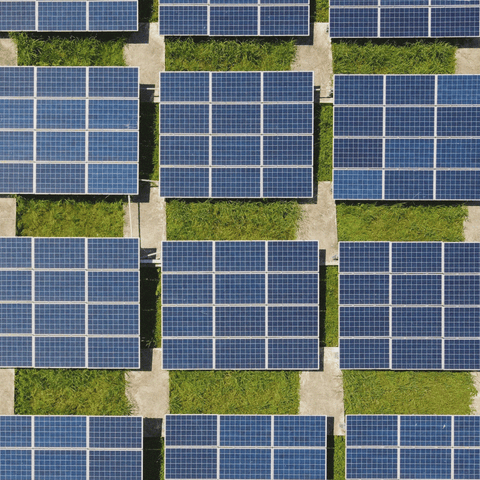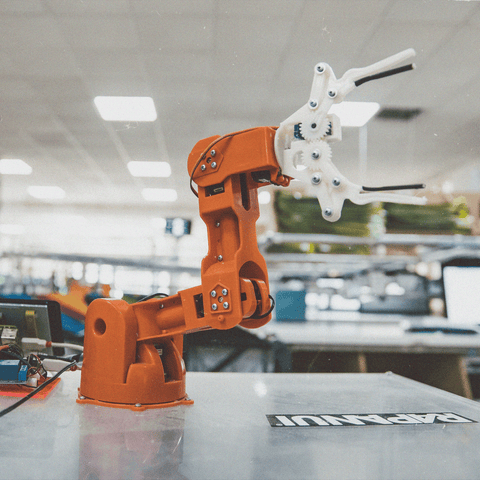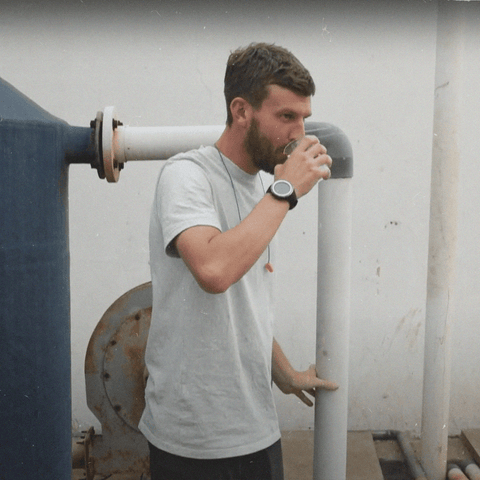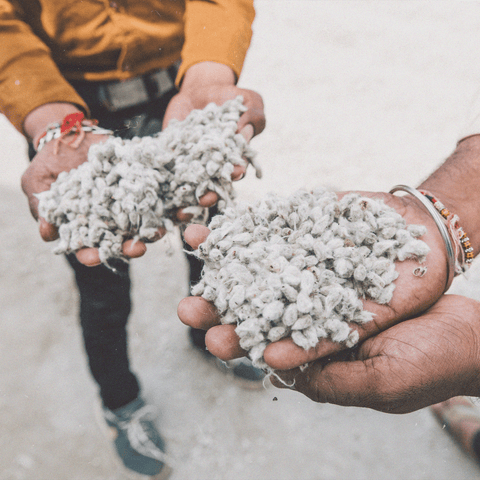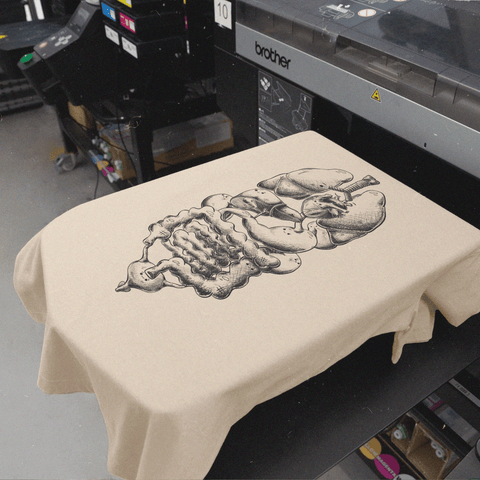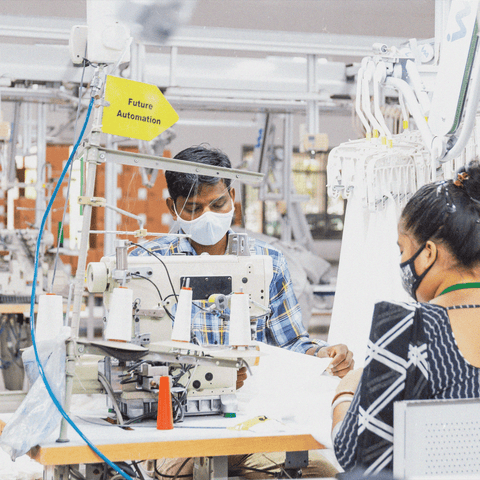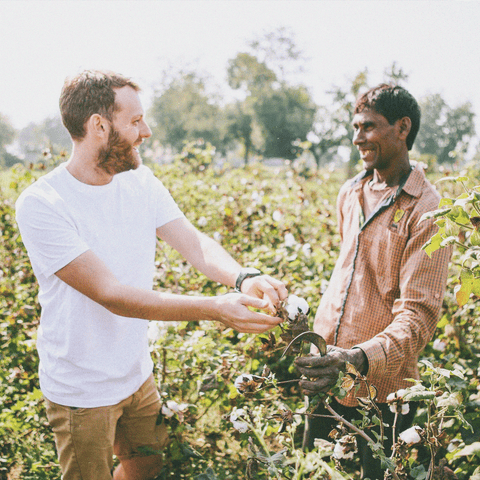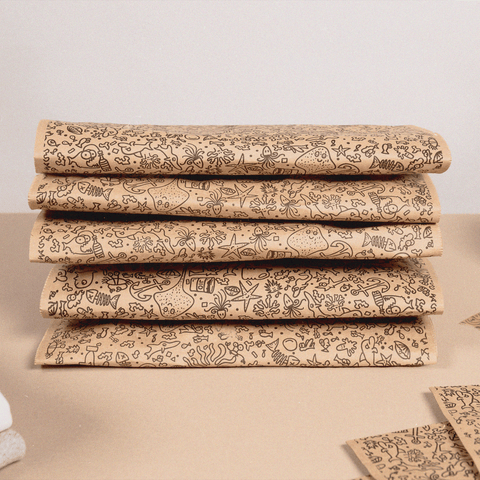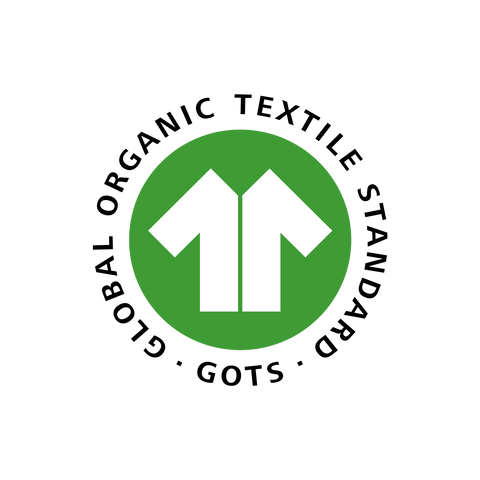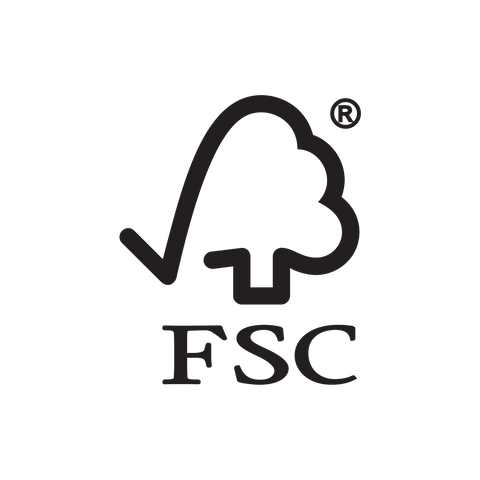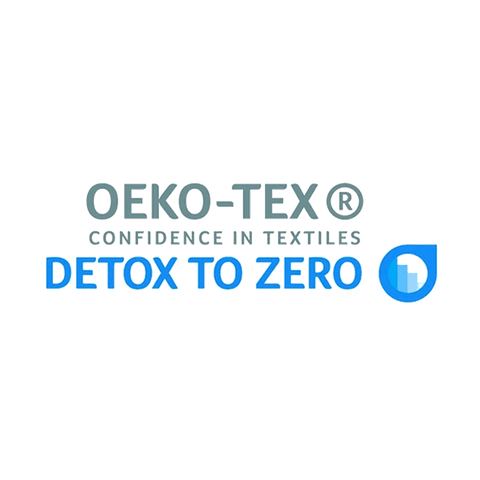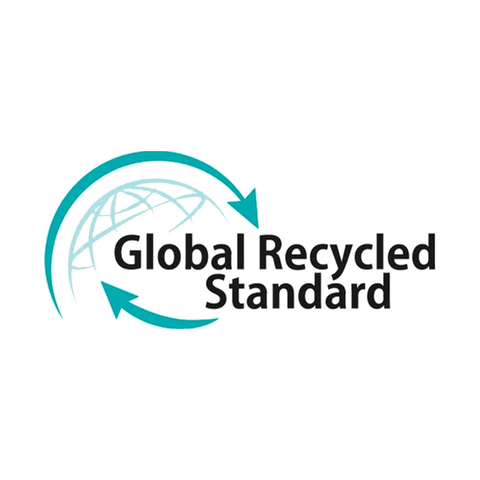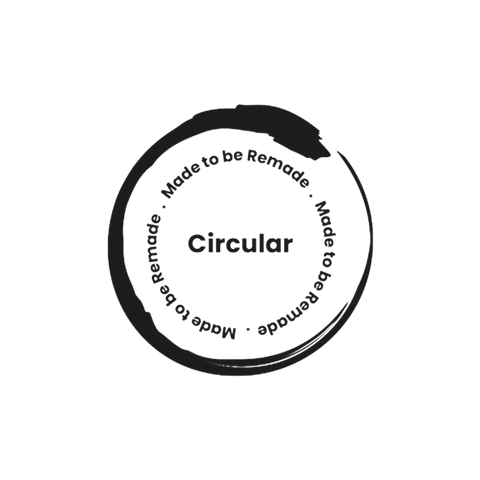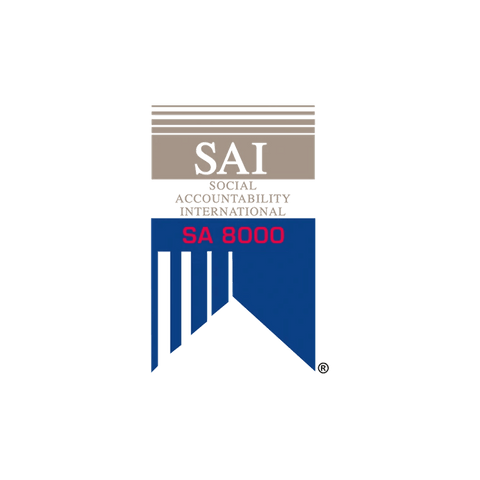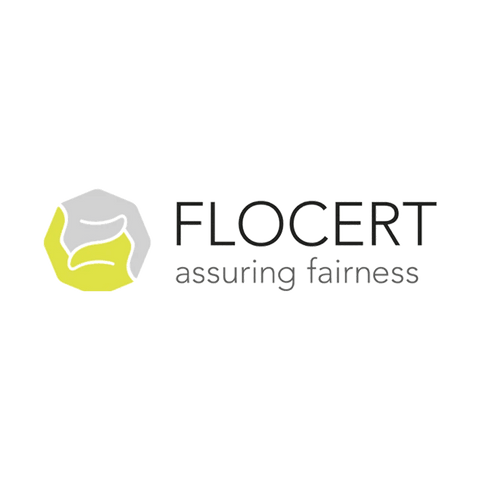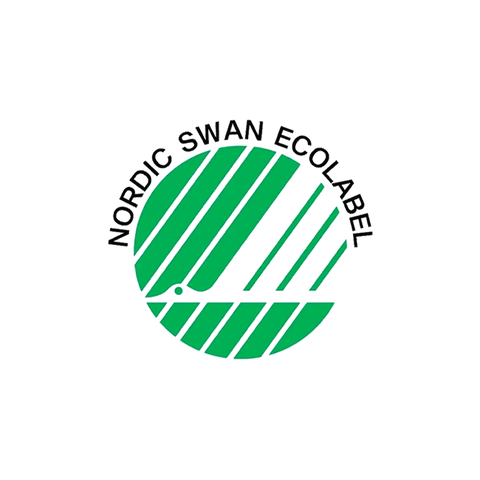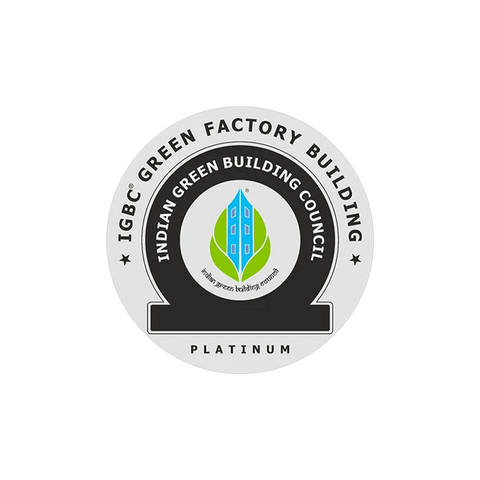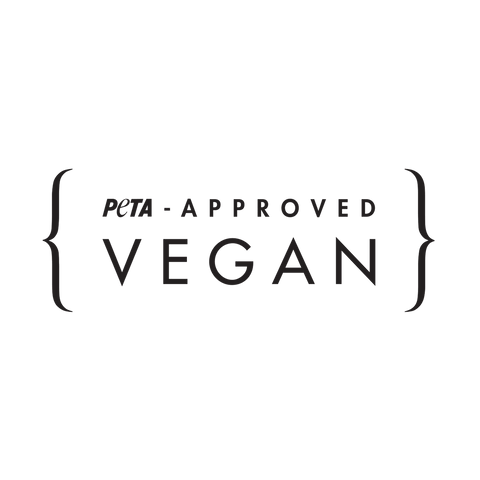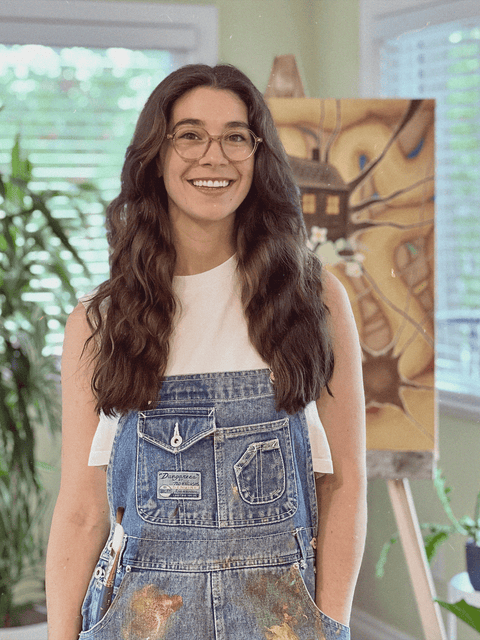Dibkast was founded by Anik B., Canada-based Senior Marketing Graphic Designer and Illustrator with over a decade of experience. She started this brand after realizing she couldn’t find truly sustainable goods that meaningfully reflected holistic wellness concepts.
What began as a casual project for herself has grown into a one-woman-owned business to share these creations with others who value wellness and ethical living.
Dibkast offers ethically and sustainably made goods that promote holistic wellness. The curated collection of educational art prints, organic apparel, and eco-friendly accessories are designed to promote mind-body healing. Every piece is intentionally crafted, ensuring integrity at every stage of creation.
Meaning of Dibkast:
“Dib” comes from the expression “calling dibs,” symbolizing the act of receiving wants, needs and healing through manifestation. “Kast” carries layered meaning. It means “closet” in Dutch, a nod to founder Anik B.’s ancestral roots. It also represents a cast/group of like-minded individuals practicing holistic wellness and advocating for sustainability together. Additionally, it represents the casting of life energy from the body’s energy centers.
Holistic wellness:
Our products illustrate and educate on wellness and self-healing. These visual cues serve as gentle educational reminders to incorporate holistic health into daily life. These visual cues can help craft rituals that nurture well-being. Whether at home or on the go, each item serves as an accessible tool, providing grounding support in moments of dysregulation or disconnection.
Holistic wellness recognizes the interconnectedness of body, mind, and spirit, where emotional stress can manifest physically, and poor physical health can affect mental health. Drawing from ancient healing practices, this approach encompasses lifestyle habits, diet, natural remedies, rituals, and mindfulness practices. These methods engage the mind through the five senses, including movement, sound, aromas, visualization, and taste. Examples include Traditional Chinese Medicine, Ayurveda, Reiki, manifestation, naturopathy, somatic therapies, breathwork, meditation, grounding, practicing presence, nervous system regulation, aromatherapy, and more.
While the mind serves as the control center for all human functions, holistic healing methods work through the physical body to address all aspects of health. This is because engaging in physical practices stimulates the right hemisphere of the brain, which communicates with the subconscious, where trauma, chronic pain, and limiting beliefs are often stored. Working through the body accesses deeper layers of the mind, helping to reshape neural patterns that keep us stuck. Honoring the mind-body connection is essential for true healing to unfold.
Holistic wellness holds immense healing power—and here, we heal in style. Hopefully, those who browse collections find something beautiful that resonates with them—something to embody as they step back into their day.
Sustainability:
Sustainability is at the heart of what we do because the health of the planet and its inhabitants are one and the same. Anything that harms the planet, in turn, harms everything within its ecosystem. The global annual statistics surrounding pollution are staggering and need to change. Adapting to a profoundly sick society is no means of health, which is why we're breaking the mold with radical acts of love!
Many believe that once a product reaches their hands, the harsh chemicals used in manufacturing no longer pose a risk. In reality, toxic substances can remain in the materials we touch, wear, cook with and bring into our homes. Human skin can absorb chemicals, especially from synthetic materials, sometimes in harmful amounts. From clothing to everyday goods, many products contain harsh chemicals that can negatively impact our health.
Our planet and all living beings have incredible self-healing abilities. However, for that natural restoration to occur, we must stop poisoning them faster than they can recover. Sustainable production isn’t just about reducing long-term environmental harm. It’s about protecting people every day. Choosing organic, responsibly made products that are tested for harmful chemicals, such as those we offer, helps minimize toxin exposure and supports a healthier future for both the planet and its inhabitants.
While Dibkast's graphic arts are hand-drawn in BC, Canada, our organic cotton is sustainably grown in India, our textile products are ethically made in India, China and Bangladesh, and everything is manufactured and dispatched from the United Kingdom or France. We looked high and low to find supply-chain partners that passed the vibe check—which we're excited to introduce below!
Sustainability
Absolute Green collection:
Every textile product we make features a QR code on the label, which allows products to be sent back when they are worn out in order to be reused and remade to avoid landfills.
Returned items are sent to our recycling factory, where the material is shredded, respun into new recycled yarn, and blended with 50% organic cotton for strength and durability.
The graphic print can be physically removed at the end of the product's life, allowing more valuable material to be recovered and reintroduced into the production cycle.
Absolute Green collection:
Our products are made in factories powered by the wind and the sun. These renewable sources minimize pollution, unlike finite fossil fuels, which release greenhouse gases and contribute to global warming.
Tree planting initiatives offset the remaining emissions. Buy One, Get One Tree campaigns take place at key moments throughout the calendar year. We partner with tree-planting organizations like Tree-Nation and contribute to reforestation projects.
Almost Green collection:
We work with La Poste, a group that measures and offsets 100% of its emissions, making our deliveries fully carbon-neutral.
Absolute Green collection:
In North India, where we grow our organic cotton, the monsoon rains replenish reservoirs that provide nearly all the water needed for our crops.
95% of the water used in the dyeing process is recovered, purified, and reused in a closed-loop system. The water undergoes settling, skimming, and filtration through reverse osmosis and distillation. Salt is added to help the dye adhere and dry. Once dried, the residue is repurposed for road markings. The remaining purified water is then recycled into the next dyeing batch to help minimize any waste.
Absolute Green collection:
OEKO-TEX social audits are conducted at regular intervals to ensure that working conditions such as safety, worker rights, and fair pay are upheld as standard.
Manufacturer staff also carry out periodic site visits, and a Greenpeace specialist has visited our locations across our supply chain for added reassurance that standards are being met.
Fair trade practices and working conditions are further verified by Fairtrade FLOCERT and SA8000 for social, environmental, and economic standards.
Almost Green collection:
The textile bases of our t-shirts are produced in accordance with fair trade standards.
Absolute Green collection:
Textile products are made from GOTS-certified organic cotton and are GM-free. This ensures that textile products and their supply chain meet strict environmental criteria, including the use of organic fibres, responsible manufacturing practices, and the avoidance of hazardous chemicals.
Cotton thread is used for most of the sewing construction, while GRS-certified recycled polyester thread is strategically applied in critical structural areas to enhance durability. This polyester thread accounts for approximately 1% of the garment's overall material composition. We are actively exploring alternative plant-based threads, such as Sorona, with the goal of hopefully eventually eliminating the need for polyester.
Almost Green collection:
The textile bases of our t-shirts are made from GMO-free, GOTS-certified organic cotton.
All graphics are printed with eco-friendly, OEKO-TEX-certified, water-based, vegan inks—free from animal-derived ingredients and not tested on animals.
Absolute Green collection:
All products from this collection are vegan.
Almost Green collection:
The textile bases of our t-shirts are PeTA-approved vegan.
Absolute Green collection:
Direct to consumer orders are shipped in sustainable packaging made from natural or recycled materials.
Our rip-proof and splash-proof mailers are made from FSC-certified paper that can be upcycled. Large orders are shipped in cardboard boxes sealed with paper-based tape.
Almost Green collection:
Orders are shipped in sustainable packaging made from recyclable cardboard sleeves or, depending on the product size, in flexible mailers made from recycled materials.
All graphics are printed with eco-friendly, vegan, OEKO-TEX-certified, water-based inks.
Absolute Green collection:
At every stage of production, OEKO-TEX standards ensure that no hazardous chemicals such as Azo colorants, formaldehyde, pentachlorophenol, lead, cadmium, or nickel are used or discharged.
Almost Green collection:
T-shirts are made with OEKO-TEX-certified textile bases.
Printed brand assets, such as signage, and business cards use recycled or FSC-certified paper as much as possible.
Absolute Green collection:
Art prints are made using 300gsm recycled heavyweight paper and ultra-high resolution, fade-resistant giclée printing.
Textile products often incorporate GRS-certified recycled polyester thread in critical structural areas to enhance durability.

